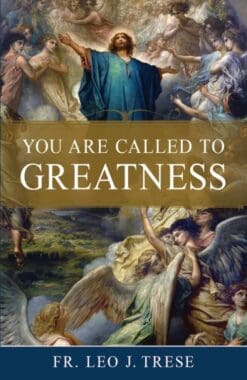To the Future—with Confidence
Are you an optimist or a pessimist? Is your outlook on life habitually a hopeful one, or do you usually expect the worst to happen?
The nature of our temperament, whether cheerful or gloomy, depends to a great extent upon the state of our emotional and physical health. A person who has had an unhappy or insecure childhood is likely to view life somberly and to be apprehensive of the future. Poor physical health also can result in a morbid and easily dejected personality.
However, we need not be the helpless victims of our “natural” self. In the free will with which God has endowed us, we have an immeasurable source of power to counteract the downward drag of emotional or physical handicaps. We can force ourselves to cultivate the habit of looking on the bright side of events and the good side of people. It has been pointed out that even the worst sinner devotes a comparatively small proportion of his time to his evil deeds.
The truth is that our faith demands of us that we be optimists. If God is in control of His world, as we surely do believe, then things have got to move forward towards the ultimate fulfillment of God’s plan. Neither man nor devil nor circumstance can defeat God’s purposes. Any setback that God may seem to suffer will be but a mirage, a seeming defeat only because we cannot see the distant victory. Even out of evil God will bring good. He somehow will weave human sin and error into His ultimate design.
Let me offer an example of the illogic of pessimism. Today we hear much and read much of the problem of juvenile delinquency, of the breakdown of parental responsibility and family morality. We easily might assume that the world really is on the road to Hell. Yet, listen to Thomas of Celano as, more than seven hundred years ago, he wrote the first biography of St. Francis of Assisi:
There has spread everywhere among those who bear the name of Christians a most depraved practice of striving to raise their children from the very cradle without any training or discipline whatsoever. On all sides this pernicious idea is as established and defined as if it were the law of the land. As soon as newborn babes begin to speak, or even lisp, they are taught by word and gesture the most disgraceful and detestable things. . . . Well has one of the profane poets said, “Because we have grown up amid the ways of our parents, from childhood all manner of evil pursues us.”
Thomas of Celano, remember, was writing in the thirteenth century, the so-called age of faith when all Europe was Catholic. Even allowing for possible rhetorical exaggeration, no modern writer would dare to condemn today’s parents and youth so bitterly.
There will be peaks and valleys on the graph as God’s world moves forward, but always the trend will be upwards. The invincibility of God must not foster a spirit of complacency in ourselves. God still expects each of us to do our best for Him and to make ourselves responsive instruments in His hands. Yet, even as we strive, it must be cheerfully and in confidence.
“God writes with crooked lines,” but it still is He who writes.
Psychologists have characterized our present era as an age of anxiety. More people worry about more things, they say, than at any other time in man’s long history.
They may be quite correct in their diagnosis. Yet, it hardly would be possible for anxiety to so possess us unless we first had surrendered our first-line defense against anxiety: our faith in God and in His providence. This, it seems to me, is the real source of our nagging fears.
When I say “we,” I really do mean we—we Catholics as well as other fellow citizens. It is not that we have formally renounced our faith. Intellectually, we still believe in God and in all that He teaches us through His Church. Yet, even as our minds give assent to divine truths, emotionally we are on the verge of atheism. Our faith is not an active, operative faith. Our religious belief does not penetrate and pervade our attitudes and feelings; and it is attitudes and feelings, rather than lofty concepts isolated in the mind, that motivate our actions.
We say we believe that God is infinitely powerful, that He has created and controls the entire universe. We also profess to believe that God is infinitely wise and that He knows always what is best for the accomplishing of His ends. Further, we assert our firm belief in the fact that God loves each one of us with an individual, personal love that seeks always what is best for us—best calculated, that is, to bring us to eternal union with Himself.
God can do all things. God knows all things. God loves me. How can I believe these truths and still be a victim to worry? The explanation can be only that I live my life on two levels. On the level of prayer and religious observance, I live by faith. On the level of day-to-day activity, I am a practicing atheist. That is, I feel that the whole weight of the future is on my own shoulders. Success or failure depends entirely upon human cleverness and ability. If my own skill or intelligence (or that of my fellows) is lacking, then disaster is inevitable. If I guess wrong or falter at any point, all is lost.
The secret of a spirit serene and confident is to let our religious belief breech the barrier between head and heart, to let faith dominate feelings and attitudes as well as intellect.
We are human and therefore by definition imperfect. Consequently, we scarcely shall escape all worry even when we have brought our faith alive. However, if we have to admit that anxiety is our frequent companion, we shall do well to assess the state of our faith.
To worry is unchristian. Worry dishonors God. It assumes that God does not have things under control. Worry implies that God is not interested in His world; or, more specifically, that God is not interested in me.
A mother may answer, “That’s all very well, but I’d be a poor sort of mother if I didn’t worry about my children.” A father may say, “If I didn’t worry about my family, I’d never keep my nose to the grindstone as I do.”
Such statements confuse the word worry with the word concern. Webster defines concern as “Interest in, or care for, any person or thing; regard; solicitude.” Worry is defined as “undue solicitude; vexation; anxiety.”
It is our duty to be concerned. Parents must have a concern for their children. All of us, as members of Christ’s Mystical Body, must be concerned about our fellow man. We must be concerned about our neighbor who is not a Catholic. We must be concerned about the slum-dwellers in our city. We must be concerned about racial injustice. We must be concerned about the people in pagan and Communist countries. We must be concerned about God’s honor and glory—and grieved that so many should dishonor Him by sin. Yes, we have ample cause for concern.
However, our concern must be laced generously with the virtue of hope if it is not to degenerate into worry. Our trust in God and in His constant, loving care must never weaken.
To avoid worry, we need, also, to have a sense of perspective. That is, we must cultivate the ability to see life as a whole and not in small pieces. We need to see our present cross—sickness, loss of job, marital strife , the birth of a child with disabilities—as part of a larger picture into which this darkness will fit as a logical and constructive part.
Our worries will lessen, too, if we have a sense of history, an ability to look back and to look ahead from where we stand. For example, parents worry about the unpredictable behavior of their teenage son or daughter. If they could look back to the emotional turmoil of their own adolescent years, and ahead to when the son or daughter will be a devoted father or mother, concern would not so easily grow into worry.
To paint with a larger brush, we might examine the anxiety that many good Christians experience at the prevalence of sin and the disregard for God’s rights. It is fitting that we have concern for God’s honor and glory. Indeed, this must be our primary and ultimate concern. However, a sense of perspective and history will keep our concern from swelling into disturbing anxiety.
While Catholics are a mere fraction of the world’s total population today, Christ’s Church remains the leaven that Jesus proclaimed it to be. There is much unbelief and sin, yes; but there is much faith and virtue, too. Every day, from the hands of priests around the world, the holy sacrifice of the Mass goes up to God, with uncounted people kneeling around those altars. God’s honor and glory are not on the wane.
We do well to be concerned for family, for neighbor, and for God—but always with courage, confidence, and hope.
+
This article is adapted from a chapter in You Are Called to Greatness by Fr. Leo J. Trese which is available from Sophia Institute Press.
Art for this post: Cover and featured image used with permission.





